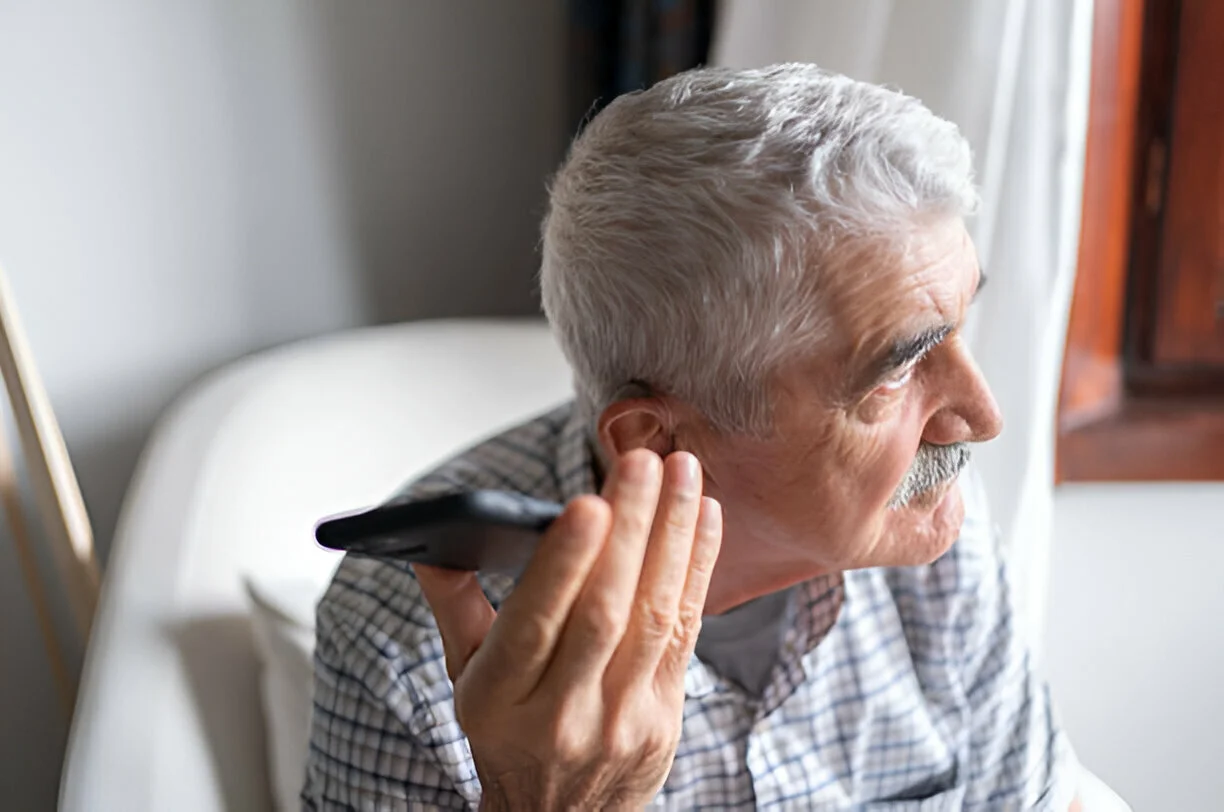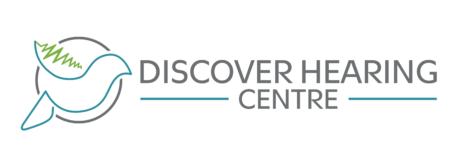5 Early Signs of Hearing Loss

Hearing loss is one of the most common health issues in the world. To prove that you’re not alone, the World Health Organization has stated that over 466 million people globally experience disabling hearing loss, and this number is expected to continue to rise.
The ability to hear is one of the senses most of us take for granted every day. We sometimes only realize that something is amiss when it becomes very noticeable. Recognizing the early signs of hearing loss is crucial to addressing them early on and maintaining your hearing health and quality of life before the problems escalate.
In this blog, we’ll discuss five early signs of hearing loss that everyone should be aware of, such as difficulty hearing conversations in noisy environments, having to ask people to repeat themselves, needing to turn up the volume on devices, having problems understanding phone conversations and missing common sounds. Identifying these signs early on allows you to seek help from hearing care professionals, such as Discover Hearing’s hearing specialists at our hearing clinic in Kitchener, to manage and treat auditory loss effectively.
Early Sign #1: Difficulty Hearing Conversations in Noisy Environments
One of the earliest and most common signs of hearing loss is struggling to hear conversations in noisy environments. Because background noise can drown out sounds you want (and need) to hear, it can become challenging to follow conversations. Many people just wave it off as the background noise is too loud, but it could be a severe sign.
Imagine being in a crowded restaurant with friends. The background chatter and clinking of dishes make it hard for you to catch what your friends say. You find yourself nodding along, pretending to hear, or asking them to repeat themselves.
Hearing in noisy environments involves much more complex auditory processing than you might think. Your brain must filter out background noise and focus on the sounds you want to hear. Hearing loss makes this filtering process less effective, leading to difficulty understanding speech in noisy settings.
Early Sign #2: Frequently Asking People to Repeat Themselves
Another common early sign of hearing impairment is frequently asking people to repeat themselves. This can be frustrating for both you and those around you.
During conversations, you might often ask, “What?” or “Can you say that again?”. This repetition can interrupt the flow of conversation and cause frustration.
Constantly asking for repetition can strain relationships and potentially lead to misunderstandings, especially if you are self-aware about it and rather assume than feel the need to ask. It could also cause embarrassment or self-consciousness, prompting you to withdraw from social interactions to avoid it, which has now been proven to be a modifiable risk factor influencing the progression of cognitive decline.
Also Read: Should I Get a Yearly Hearing Test? Key Benefits Explained
Early Sign #3: Turning Up the Volume on Devices
In addition to the above, people with early hearing loss often also have to turn up the volume on their devices, such as TVs, radios, and phones, to hear more clearly.
If you need to set the TV volume higher than others in your household find comfortable, it could be a clear indication of auditory decline.
What makes this even worse is that increasing the volume can lead to more hearing damage and quickly turn into a vicious cycle. Generally, it’s a sign that your ears are having problems picking up sounds at normal levels, which could be a pretty strong sign that your auditory health is declining.
Early Sign #4: Difficulty Understanding Phone Conversations
Another very common sign of hearing loss is phone conversations. More than with in-person conversations, you don’t have visual cues. If the connection is not great, you could be affected by a poorer sound quality in the first place, making it even more challenging to understand and follow conversations.
During phone calls, you may frequently ask the person on the other end to speak louder or repeat themselves, or you might struggle with clarity and pitch. Due to the difficulty of hearing, you might speak louder than you have to yourself, which could indicate hearing issues for the person on the other end as well.
If you can see the other person, you can take visual cues, such as gestures and motions, to gain context, but on the phone, you rely solely on sound clarity and pitch to understand and follow. Any difficulties in doing so can impact your ability to communicate effectively, especially in professional situations or emergencies.
Early Sign #5: Missing Common Sounds
Another common early sign of hearing loss is missing every day sounds like doorbells, alarms, or birds chirping. These sounds are often high-frequency and can be the first to fade as hearing declines. Due to their position in the ear, the tiny hairs in the ear that translate sound waves into electrical impulses sent to the brain responsible for high-frequency sounds usually get affected first.
You might not hear the doorbell ring or miss your phone’s ringtone when it’s in another room. Missing these sounds could have practical and severe implications for your safety and daily routine and affect your safety and independence. You might be unaware of potential hazards, miss appointments, or be unaware of unattended visitors.
Causes and Risk Factors
Some common causes and risk factors can be related to hearing loss at various stages of life.
- Aging: Presbycusis, or age-related hearing loss, is a common cause of hearing decline.
- Noise Exposure: Prolonged exposure to loud noises, whether due to jobs involving loud work environments, like construction of factory work or listening to loud music through headphones and frequently attending loud concerts, can lead to noise-induced hearing loss.
- Genetics: A family history of hearing loss can increase your risk.
- Medical Conditions: Conditions such as cardiovascular diseases, diabetes and hypertension are known contributors to hearing loss.
- Ototoxic Medications: Some medications can damage the inner ear and affect hearing.
Also Read: Top 4 Major Causes of Hearing Loss & How to Prevent It
Prevention and Early Detection
Tips for Prevention
- Use Hearing Protection: Wear earplugs or earmuffs in noisy environments.
- Avoid Loud Noises: Limit exposure to loud sounds and take breaks in quiet areas.
- Maintain a Healthy Lifestyle: Exercise regularly, eat a balanced diet, and manage chronic conditions.
Importance of Regular Check-Ups
Regular hearing tests are one of the most crucial and efficient ways to detect hearing loss early. Our hearing practitioners can conduct comprehensive hearing assessments to identify the need for preventative hearing treatment to improve auditory and cognitive stimulation.
Self-Monitoring
You can also be proactive about monitoring your hearing health. Pay attention to the signs mentioned above and seek a professional hearing test if you notice any changes. Sometimes, these changes can be subtle and happen over a prolonged period of time, so they may not be as noticeable. Also, pay attention to other people mentioning signs to you.
When to See a Specialist
If you recognize any of the early signs of hearing loss, it’s time to consult a professional, such as a hearing specialist or hearing care provider. Other indicators include:
- Tinnitus (ringing in the ears).
- Difficulty understanding speech in quiet environments.
- Experiencing ear pain or discomfort.
Typically, a hearing assessment includes a series of tests to evaluate your hearing ability and identify the type and degree of hearing loss. This can consist of testing to see if you can properly hear sounds of different frequencies, sequences, or volume ranges. Based on the results, your hearing specialist or hearing care provider can recommend appropriate treatments, such as hearing aids or other hearing care solutions.
Conclusion
Recognizing the early signs of hearing loss can be crucial for seeking treatment early, avoiding escalating problems, and significantly improving your quality of life. If you experience difficulty hearing conversations in noisy environments, frequently ask people to repeat themselves, turn up the volume on devices, struggle with phone conversations, or miss common sounds, it’s critical to seek help from a hearing specialist.
Early detection and treatment can help preserve your hearing health before things become dangerous and ensure that you can fully engage in your daily activities. If you notice these signs, consider scheduling a hearing test at Discovery Hearing Centre’s hearing clinic in Kitchener to take the first step towards better hearing health.
Schedule A Hearing Assessment
Visit our hearing clinic in Kitchener and schedule a hearing test with our professional experts. We offer comprehensive audiology services, from hearing tests and education to digital hearing aids and personalized hearing loss treatments that put you and your specific hearing health needs at the centre. Whether you need a hearing test in Kitchener, are looking for invisible hearing aids or require help with hearing aid fittings and programming, Discover Hearing Centre is here for you.
Discover Hearing Centre is a local clinic specializing in the treatment of hearing loss; we’ve worked with hundreds of patients to help them maintain independence. Whether you’re experiencing hearing loss or need help with tinnitus management, or are looking for a hearing test in Waterloo, we’re dedicated to improving your quality of life through better hearing. When you choose us, you choose a team committed to your well-being.
Call us today at 519-208-4327 or fill out our convenient online form to learn more about how we can help you with hearing loss issues.
You Might Also Like
Top 4 Major Causes of Hearing Loss
What Is Tinnitus? Causes, Symptoms, and Treatment Options
Does Tinnitus Get Worse With Age?
Have Questions?
Call our office if you have any questions about your hearing loss or anything else related to hearing. We are happy to help and answer any questions you may have.





